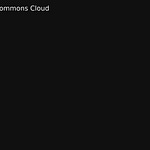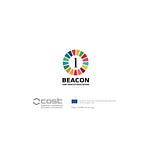Reading time: about 6 minutes.
Summary: A brief update on forthcoming publications, infrastructure, and the first expansion of our COST Action network.
Dear all. My bad if this post is not of your interest. Please, unsubscribe, in that case. I have invited new co-authors and colleagues from my pending papers at the collective level, in the spirit of openness, as science has always aspired to be. Thank you all, and my apologies for all delays in the pending developments. This is an update on contributions expected in the coming days and weeks. I am currently, and will remain, incommunicado, to finish all work. I expect to post again in the 29th or 30th, and be back at replying emails by the 10 or 15th of next month, with all ready on my end.
One forthcoming paper examines the practice of pasung, shackling, the chaining of individuals to the abusers own disgraceful ways to hold and restrain, keep under control as if that was healing, locking, a form of torture that must never be justified. This work situates pasung within four centuries of biocultural re-education and structural control, from imperial Spain through the colonial and post-colonial histories of Indonesia. It shows how practices of punishment and restraint have been normalized, and why they must now be abolished through education, law, and policy.
Across the last four centuries, both the Spanish Empire and the territories of present-day Indonesia have borne systemic atrocities that reveal the endurance of violence as an instrument of governance. Spain, during its imperial expansion, imposed mass displacement, enslavement, forced conversion, and land confiscation. Entire populations were subjected to inquisitorial punishments, executions, and cultural erasure. The empire codified violence as law, presenting it as order, while annihilating self-determination and cultural plurality. Indonesia, though not occupied primarily by Spain except in certain islands, suffered under successive colonial regimes. Portuguese, Dutch, British, and Japanese authorities imposed forced labor, taxation, and plantation systems that caused famine, mass death, and long-term impoverishment. The cultuurstelsel of the nineteenth century, for example, transformed agriculture into a mechanism of exploitation that broke communities. In addition, the persistence of pasung, the chaining of people suffering diseased of despair and/or the results of violence, or simply cast away and locked due to alleged social deviance, represents not merely a traditional practice but an inherited normalization of restraint and punishment, reinforced by structural neglect.
The cultuurstelsel, imposed in 1830 by the Dutch crown after taking control from the bankrupt East India Company, forced Javanese villages to dedicate at least one fifth of their land and labor to export crops such as sugar, coffee, and indigo, though in practice far more was extracted, leading to famine, disease, and the collapse of subsistence farming while Dutch revenues soared.
Enforcement relied on military violence, with punitive expeditions that destroyed villages, killed civilians, and in some cases amounted to genocide through the deliberate clearing of populations from their lands. Sexual exploitation was widespread, with women and girls coerced into servitude and routinely subjected to abuse by colonial officials, local collaborators, and plantation managers, turning sexual enslavement into a normalized practice within the system of tribute and coercion. Communities were stripped of autonomy, their governance broken, their survival undermined by structural violence that blurred the boundaries between taxation, slavery, and tribute. Public exposure in the late XIXth century, initiated through the novel Max Havelaar, eventually led to gradual dismantling, yet the logic of exploitation persisted under private plantations, leaving behind entrenched poverty, ecological devastation, and the deep social scars of forced labor, systemic violence, and cultural destruction.
Atrocities, current and past, must never be framed, portrayed by anyone, as isolated acts, nor as residing as illnesses in the bodies of those suffering the sociocultural and geopolitical realities, the tortures by any means and degrees of it, in their daily lives. They belong to long trajectories of control, legitimated by claims of civilization, morality, or public health. Medicine must never be at the service of torturers, nor any of the many abusive masters of olden and present times. Poison, violence, chained bodies, and censored minds are recurring realities, still present, of such normalization. Historical acts echo into the present, where the refusal to abolish inhumane practices perpetuates them under new disguises. This paper poses a way to learn from past improvements, and current best practices to abolish, as our standing legality, and our global law, as well as all religious codes and sacred text that are worthy of that name, command us all to do, enforce, achieve.
Other papers are in preparation. One focuses on the political abuse of psychiatry, where diagnostic authority has been misused to discredit and silence, turning medicine into an instrument of power rather than care. Literature reviews address digital mental health, defining standards and frameworks for ethical and safe deployment. Another paper focuses on one health education, developed under the framework of a COST action, demonstrating the importance of integrated, interdisciplinary, and international approaches. These contributions reflect the seriousness and reach of the networks involved.
Our technical infrastructure is also advancing. Servers are being stacked and prepared, with all major updates and installations scheduled in the next few days. All services will be ready by next week. These platforms will support collaboration, governance, translation, and publication. They form the operational foundation of our next phase of collective work. At the same time, preparations for the first expansion of the COST action are underway. The initial media campaign is being designed and will be launched soon, with a complete media kit and an open invitation to join. A video prepared for this release illustrates our mission and will accompany the campaign.
Please, subscribe to the action’s Youtube channel and official publication, in case it is of your interest: https://beacon.health.int.eu.org
The guiding principle is open science. Knowledge must be collective, transparent, and shared across disciplines and societies. Consilience is essential: anthropology offers biocultural analysis, biology and ecology provide foundations for understanding life and environment, cognitive sciences reveal how human minds adapt and resist, and health sciences connect care with justice. Together with the social sciences and law, these fields must converge to address the crises of health, environment, and inequality. The mandate is clear. We must educate, abolish practices that degrade human life, and strengthen those that protect it. The foundations codified worldwide after the Holocaust, and reinforced in subsequent conventions, remain our compass. Custom, appearance, tokenism, purest the cargo cult behaviors at maintaining the facade without the spirit nor substance, the real actions required, all false claims of morality, never excuse cruelty. Science and society alike uphold human dignity, openly and without compromise, or simply betray it.
There is one last update I am very glad to share. We will be contributing a small package to the Debian community, with the hope that it will soon run across all its distributions and derivatives. It is called scient, a scientific entities extractor. The package is still a work in progress, not yet finished. The name reflects both simplicity and multiplicity, for one word may hold many meanings, often distorted through mistyping or poor OCR, intentionally cut short for good or worse. It will become one more collective contribution. As our action itself, it will begin modestly, yet will grow steadily, serving a specific and valuable task. It will support our ongoing mapping work, our literature reviews, the media campaign, and our outreach to new potential members. Workshops dates will follow in due course. For now, the priority has been to place the action on the strongest possible track. I am doing my utmost to invite those who can and wish to contribute, and I encourage you to take the initiative and share freely. Soon, I will provide links to the testing of the new services, alongside pending meetings. I am proud to be installing open-source solutions for us all to use, ensuring the highest standards while saving our shared action money, resources, and time. This is also a learning process for me, and I advance with it step by step.
The goal has been abundantly stated already: to reach all children, all schools willing, and everyone in need, our mandate. I will do my best to comment and document the code as we proceed. Thank you for your commitment and for being part of this collective effort. Working together remains the only way forward.










